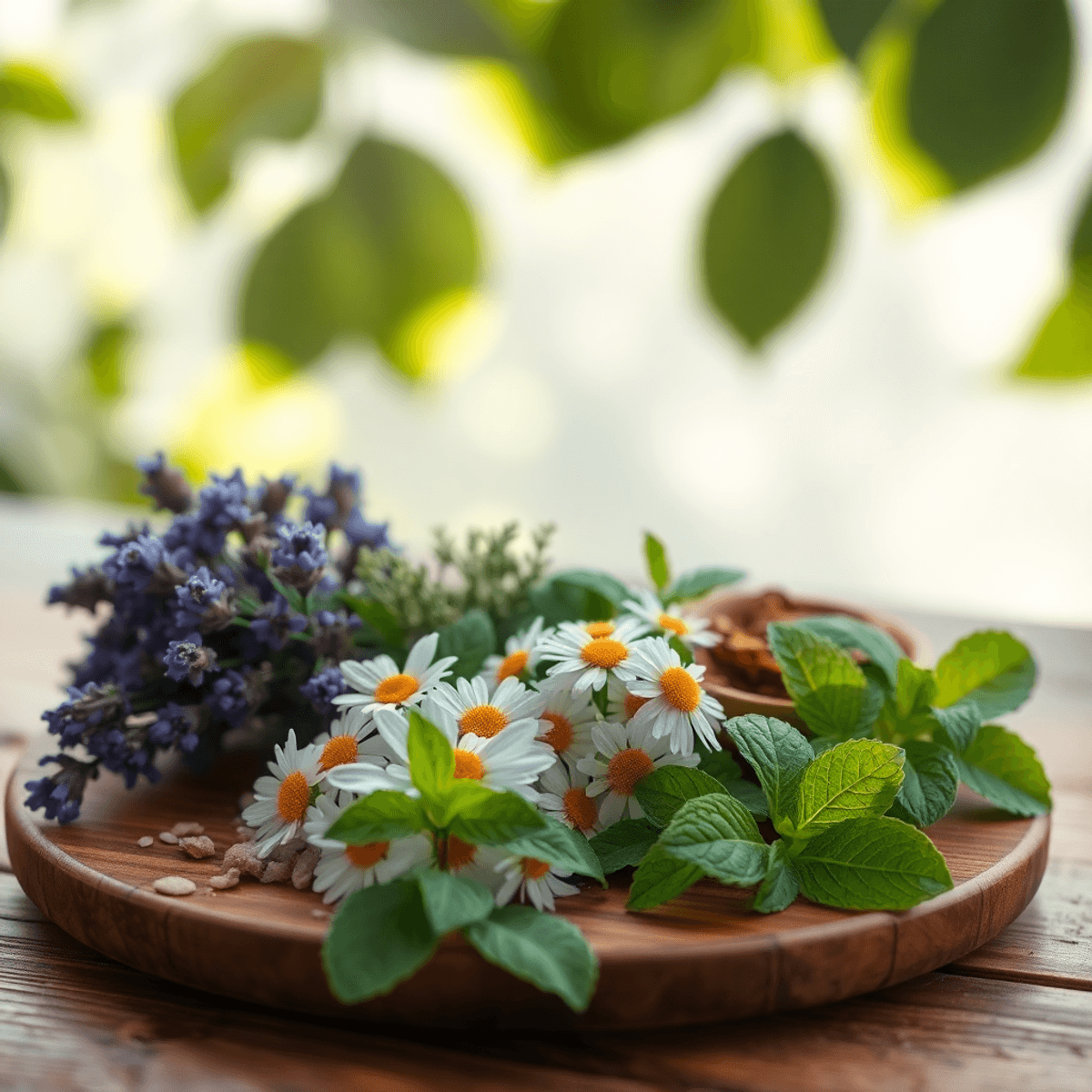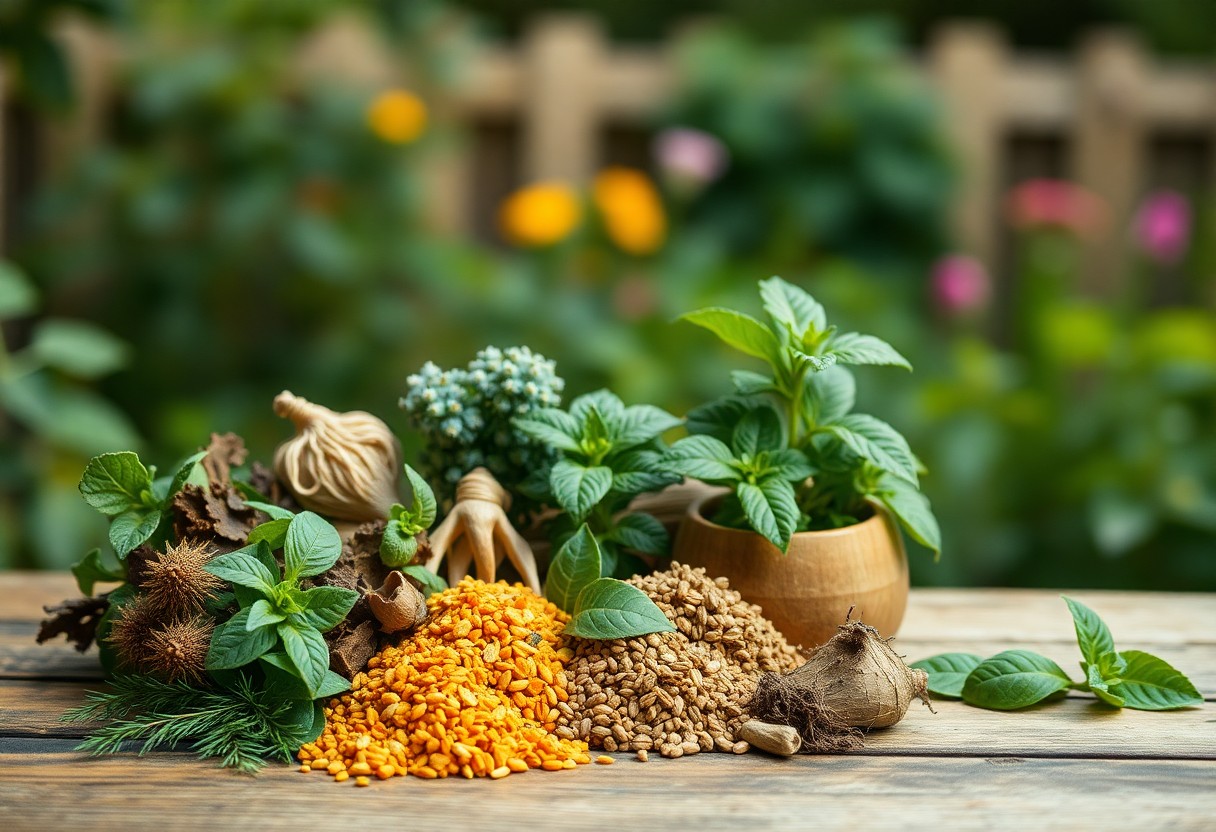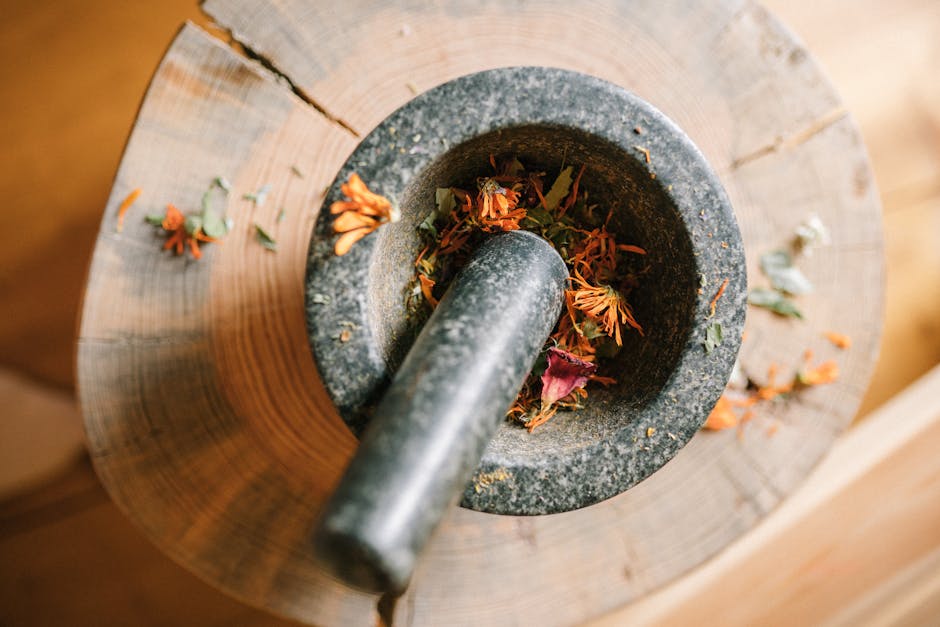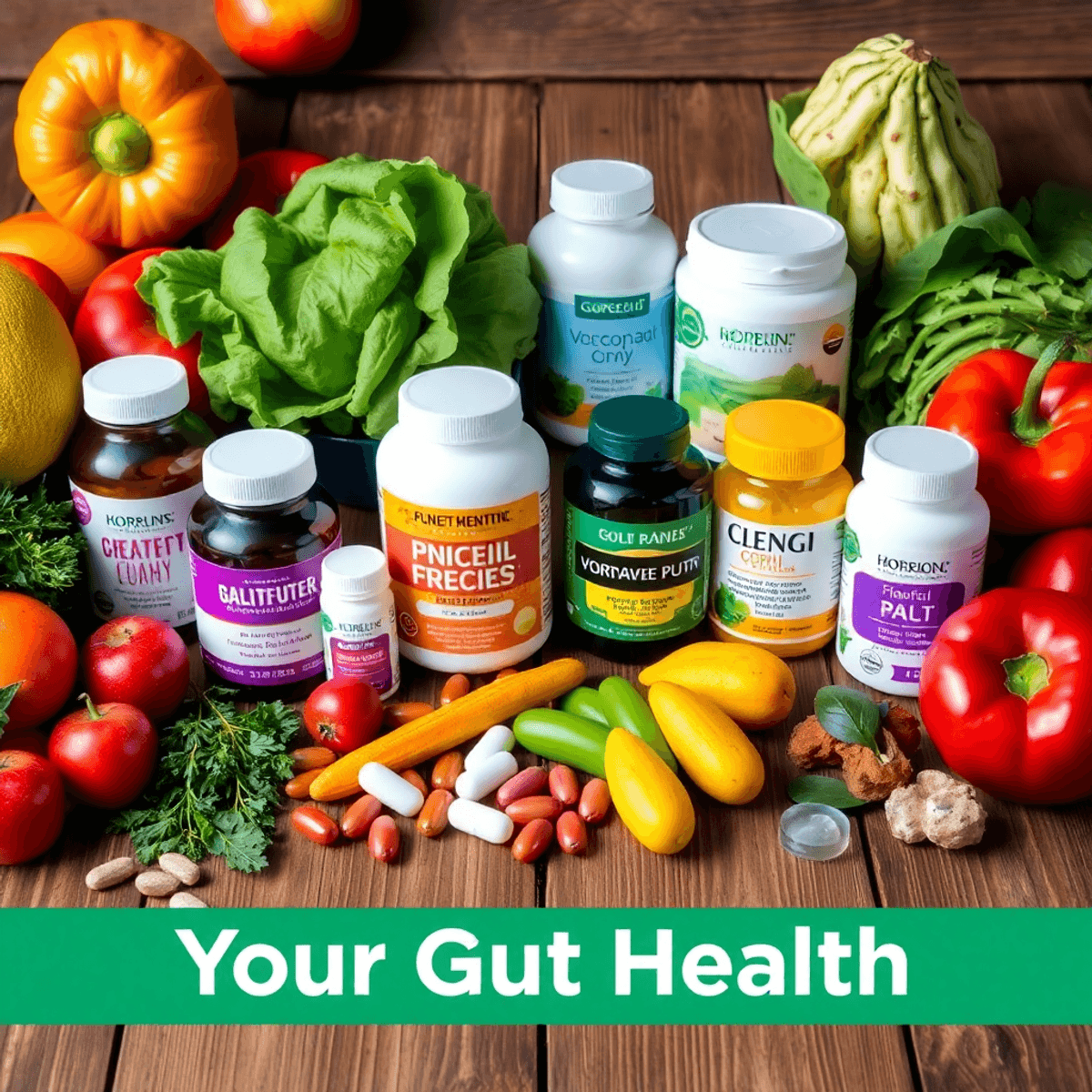Introduction
In today’s fast-paced world, mental clarity and emotional balance are crucial for our well-being. The constant demands of modern life can leave you feeling mentally foggy and emotionally drained, affecting your productivity, relationships, and overall quality of life.
The Role of Natural Herbs in Supporting Mental Health
Natural herbs have emerged as powerful allies in supporting mental health. These botanical treasures offer a gentle yet effective approach to enhancing cognitive function and stabilizing mood. From ancient wisdom to modern research, herbs have shown great promise in:
- Reducing stress and anxiety
- Improving focus and concentration
- Supporting emotional resilience
- Promoting better sleep quality
- Enhancing memory function
The Shift Towards Holistic Approaches
The integration of herbal remedies with conventional mental health treatments has gained significant momentum. More and more people are now seeking holistic approaches to mental wellness, combining traditional medicine with natural alternatives. This shift reflects a deeper understanding of mental health’s complexity and the value of diverse treatment options.
The Potential of Specific Herbs
Research continues to validate what traditional healing systems have known for centuries – certain herbs contain compounds that can positively influence our mental and emotional states. These natural solutions offer hope for those looking for balanced, sustainable ways to support their mental well-being.
1. Understanding Mental Health and Herbal Remedies
Mental health encompasses your emotional, psychological, and social well-being. It affects how you:
- Think and process information
- Handle stress and life challenges
- Make decisions and choices
- Build and maintain relationships
- Function in daily activities
A balanced mental state allows you to realize your potential, work productively, and contribute meaningfully to your community. When mental health challenges arise, many people seek natural alternatives to support their well-being.
Herbal remedies serve as complementary therapies – natural treatments that work alongside conventional mental health care. These plant-based medicines offer several advantages:
- Gentle yet effective support for mild to moderate symptoms
- Fewer side effects compared to conventional medications
- Long history of traditional use across cultures
- Accessibility and cost-effectiveness
- Empowerment through self-care practices
Research continues to validate the effectiveness of specific herbs for mental health support. Scientists study their active compounds, mechanisms of action, and potential benefits for conditions like anxiety, depression, and stress-related disorders.
2. St. John’s Wort: A Traditional Remedy for Depression
St. John’s Wort (Hypericum perforatum) is one of Europe’s most popular herbal remedies for depression, with its use dating back to ancient Greece. This bright yellow flowering plant earned its name from its traditional harvesting during St. John’s Day.
How It Works
The herb’s active compounds – hypericin and hyperforin – work by:
- Increasing serotonin levels in the brain
- Regulating dopamine and norepinephrine
- Reducing inflammation linked to mood disorders
Effectiveness and Dosage
Research indicates St. John’s Wort can match the effectiveness of standard antidepressants for mild to moderate depression, with fewer side effects. A typical dosage ranges from 300-900mg daily, depending on the extract’s concentration.
Safety Considerations
While St. John’s Wort can be an effective treatment for depression, it’s important to be aware of potential safety considerations:
- Avoid combining with SSRIs or other antidepressants
- Can reduce effectiveness of birth control pills
- May interfere with blood thinners and HIV medications
- Can increase sensitivity to sunlight
- Not recommended during pregnancy or breastfeeding
When to Expect Results
Studies show optimal results appear after 4-6 weeks of consistent use, making it a viable option for long-term depression management under professional guidance.

3. Ginseng: A Potential Mood Enhancer
Ginseng is a powerful herb that has been used in traditional medicine for thousands of years. It contains active compounds called ginsenosides, which help the body adapt to stress and maintain balance.
How Ginseng May Improve Your Mood
Research suggests that ginseng may have a positive effect on mood regulation. Here’s how it works:
- Increases production of feel-good neurotransmitters like serotonin and dopamine
- Reduces stress hormone levels in the body
- Enhances mental clarity and cognitive performance
- Supports natural energy levels without caffeine crashes
Recommended Dosage and Timeline
Studies suggest taking 200-400mg of ginseng daily can improve mental fatigue and boost mood. Users report experiencing enhanced focus and reduced brain fog within 2-3 weeks of consistent use.
Safety Considerations
While ginseng is generally safe for most people, it’s important to keep the following safety considerations in mind:
- Start with a lower dose to assess tolerance
- Avoid taking ginseng in the evening as it may disrupt sleep
- People with hormone-sensitive conditions should consult healthcare providers
- Temporary side effects may include headaches or changes in blood pressure
The Importance of Lifestyle Factors
Ginseng works best when combined with a balanced lifestyle, including proper sleep and stress management practices. It’s also worth noting that ginseng’s effectiveness can vary from person to person, so it’s essential to pay attention to how your body responds when starting supplementation.
4. German Chamomile: Easing Anxiety and Depression Naturally
German Chamomile stands out as a gentle yet powerful herb for managing anxiety and depression. This daisy-like flower contains apigenin, a compound that binds to specific brain receptors, creating a mild sedative effect.

How German Chamomile Works
Research shows German Chamomile can reduce anxiety symptoms by:
- Lowering cortisol levels in the body
- Promoting better sleep quality
- Calming nervous system activity
A 2016 clinical study revealed that participants who consumed chamomile tea experienced a 50% reduction in anxiety symptoms compared to those taking a placebo. The study participants reported improved sleep patterns and decreased racing thoughts.
Why Choose German Chamomile?
The herb’s safety profile makes it an attractive option for daily use:
- Recommended forms:
- Hot tea (2-3 cups daily)
- Tinctures (30-60 drops, 3x daily)
- Essential oil for aromatherapy
Safety considerations:
- Avoid if allergic to plants in the daisy family
- Start with small doses to test sensitivity
- Possible mild drowsiness in some individuals
- Not recommended during pregnancy without medical supervision
5. Lavender: Aromatherapy for Emotional Balance and Clarity
Lavender essential oil is a key player in aromatherapy practices for mental wellness. Research shows that inhaling lavender’s distinct aroma triggers specific responses in the brain, directly influencing your emotions and stress levels.
Studies highlight lavender’s effectiveness in:
- Reducing anxiety symptoms by up to 45% in clinical settings
- Improving sleep quality through pre-bedtime aromatherapy
- Decreasing cortisol levels during stressful situations
- Enhancing cognitive performance during demanding tasks
You can enjoy the benefits of lavender through various methods:
- Direct inhalation: 2-3 drops on a tissue or aromatherapy inhaler
- Room diffusion: 5-6 drops in a diffuser for ambient stress relief
- Pillow spray: Mix with water for a calming bedtime ritual
- Pulse point application: Diluted with carrier oil for on-the-go stress management
A 2020 clinical trial demonstrated that participants exposed to lavender aromatherapy showed improved focus and reduced mental fatigue during high-stress work periods. The study revealed sustained benefits when lavender was used consistently over an 8-week period.
6. Saffron: The Emerging Super Herb for Mood Improvement
Saffron (Crocus sativus) has gained significant attention in the scientific community for its remarkable impact on mood disorders. Recent clinical studies demonstrate that saffron extract matches the effectiveness of common antidepressants like fluoxetine and imipramine, with fewer side effects.
Research highlights three key benefits of saffron for mental health:
- Neurotransmitter regulation: Saffron’s active compounds enhance serotonin availability in the brain
- Anti-inflammatory properties: Reduces brain inflammation linked to depression
- Antioxidant effects: Protects brain cells from oxidative stress
A 2019 meta-analysis revealed that taking 30mg of saffron extract daily produces significant improvements in depressive symptoms within 6-8 weeks. You can incorporate saffron through:
- Saffron extract capsules (30mg daily)
- Saffron threads in cooking (use 15-30mg per serving)
- Saffron tea (steep 5-10 threads in hot water)
Safety note: Saffron supplements are generally safe at recommended doses. High doses can cause dizziness and nausea. Pregnant women should avoid medicinal amounts of saffron.

7. Ashwagandha: Adaptogen for Stress Relief and Mental Resilience Enhancement
Ashwagandha (Withania somnifera) is a powerful adaptogenic herb known for its ability to relieve stress. This ancient Ayurvedic herb works by regulating your body’s stress response system, helping you maintain balance during challenging times.
Key Benefits of Ashwagandha:
- Reduces cortisol levels by up to 30%
- Improves sleep quality
- Enhances mental focus
- Stabilizes mood fluctuations
- Boosts energy levels
Research shows that Ashwagandha root extract significantly reduces anxiety scores and improves cognitive performance. A notable study in the Journal of Clinical Medicine reported a 69% reduction in anxiety and insomnia symptoms among participants taking 300mg of high-concentration Ashwagandha root extract twice daily.
Recommended Usage:
- Start with 300-500mg daily
- Take with meals
- Choose standardized root extracts
- Allow 2-3 weeks for noticeable effects
Safety Notes:
- Avoid during pregnancy
- May interact with thyroid medications
- Stop use 2 weeks before surgery
- Not recommended for autoimmune conditions
The herb’s adaptogenic compounds support your body’s natural stress response while promoting mental clarity and emotional stability. Users report improved focus, reduced brain fog, and enhanced resilience to daily stressors.
8. Turmeric (Curcumin): Anti-inflammatory Benefits for Mental Health Support
Turmeric’s active compound, curcumin, offers powerful anti-inflammatory properties that extend beyond physical health benefits. Research indicates its potential role in treating mental health conditions through several mechanisms:
- Inflammation Reduction: Curcumin targets neural inflammation, a key factor in depression and anxiety development
- Neurotransmitter Balance: Studies show curcumin helps regulate serotonin and dopamine levels
- Brain Protection: The compound’s antioxidant properties shield brain cells from oxidative stress
Clinical studies demonstrate turmeric’s effectiveness in mental health:
- A 6-week study found curcumin matched the effects of Prozac in treating depression
- Research participants showed reduced anxiety symptoms after 8 weeks of curcumin supplementation
Ways to Include Turmeric in Your Diet:
- Add to warm milk with black pepper for enhanced absorption
- Mix into smoothies or juices
- Include in curry dishes and soups
- Take curcumin supplements (500-2000mg daily)
Note: Black pepper increases curcumin absorption by up to 2000%. Combining these spices maximizes turmeric’s mental health benefits.
Conclusion
Natural herbs for mental health offer promising alternatives in your journey toward emotional balance and mental clarity. These seven powerful herbs – from St. John’s Wort to Turmeric – represent nature’s pharmacy for supporting psychological well-being.
Remember these key points:
- Each herb carries unique properties and potential benefits
- Natural doesn’t always mean risk-free
- Your body’s response to herbs can vary
- Interactions with medications are possible
The path to mental wellness deserves a thoughtful, personalized approach. You’ll benefit most from these natural herbs for mental health when used as part of a comprehensive strategy, developed with your healthcare provider’s guidance. Start small, stay consistent, and listen to your body’s responses as you explore these natural allies for your mental health journey.














This article is very informative about herbal remedies for mental health. It provides insights on their effectiveness and dosages, however, people shuld be careful as they might have side effects. Always consult with a doctor before starting any new herb.